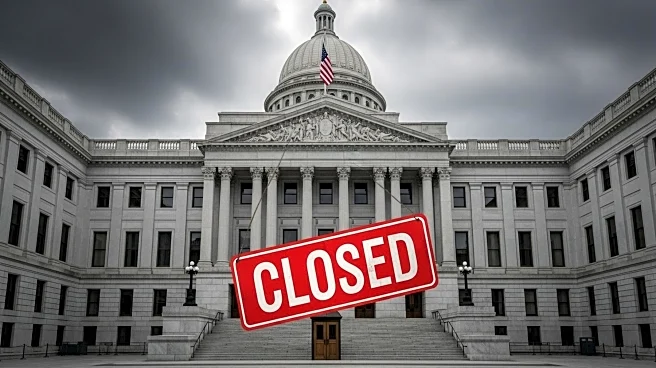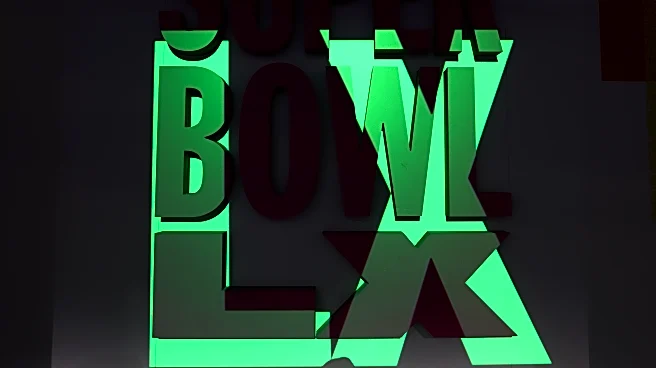What's Happening?
The U.S. government is on the verge of its first shutdown in nearly seven years after Senate Democrats voted against a Republican bill to extend federal funding. The bill, which required 60 votes to pass, fell short with a 55-45 vote. The Democrats' decision is part of a strategy to pressure President Trump and Republicans to address healthcare demands. As a result, non-essential government functions are set to halt, while critical operations like NASA missions and certain public health activities will continue.
Why It's Important?
The shutdown highlights the deep political divisions in Congress, particularly over healthcare policy. It poses significant risks to federal employees, who may face furloughs, and to public services that rely on government funding. The shutdown could also have economic repercussions, affecting everything from national parks to federal contractors. The impasse reflects broader challenges in achieving bipartisan cooperation on key policy issues.
What's Next?
With the shutdown imminent, attention turns to potential negotiations between Democrats and Republicans. Senate Majority Leader John Thune has indicated a willingness to discuss healthcare priorities if Democrats support a temporary funding bill. However, without a clear path to compromise, the shutdown could persist, increasing pressure on lawmakers to find a resolution.











